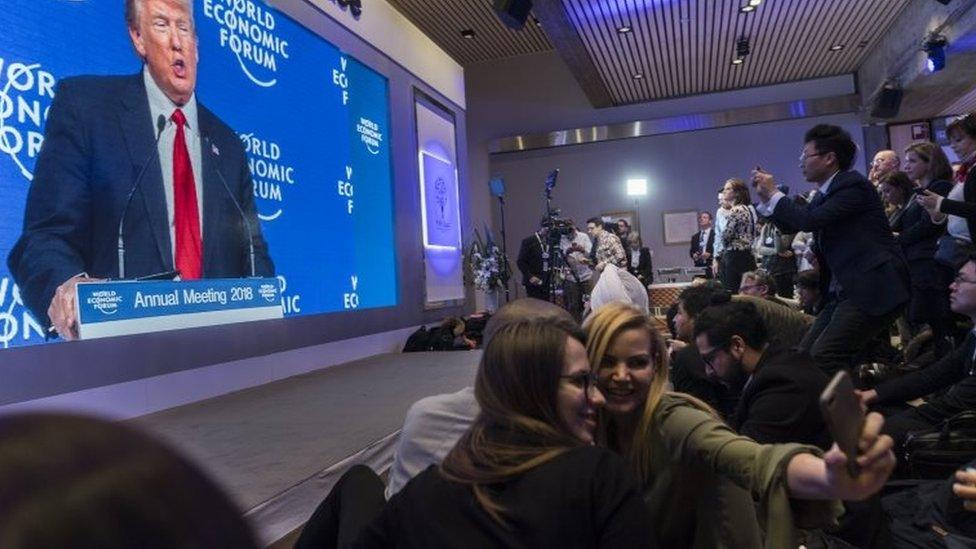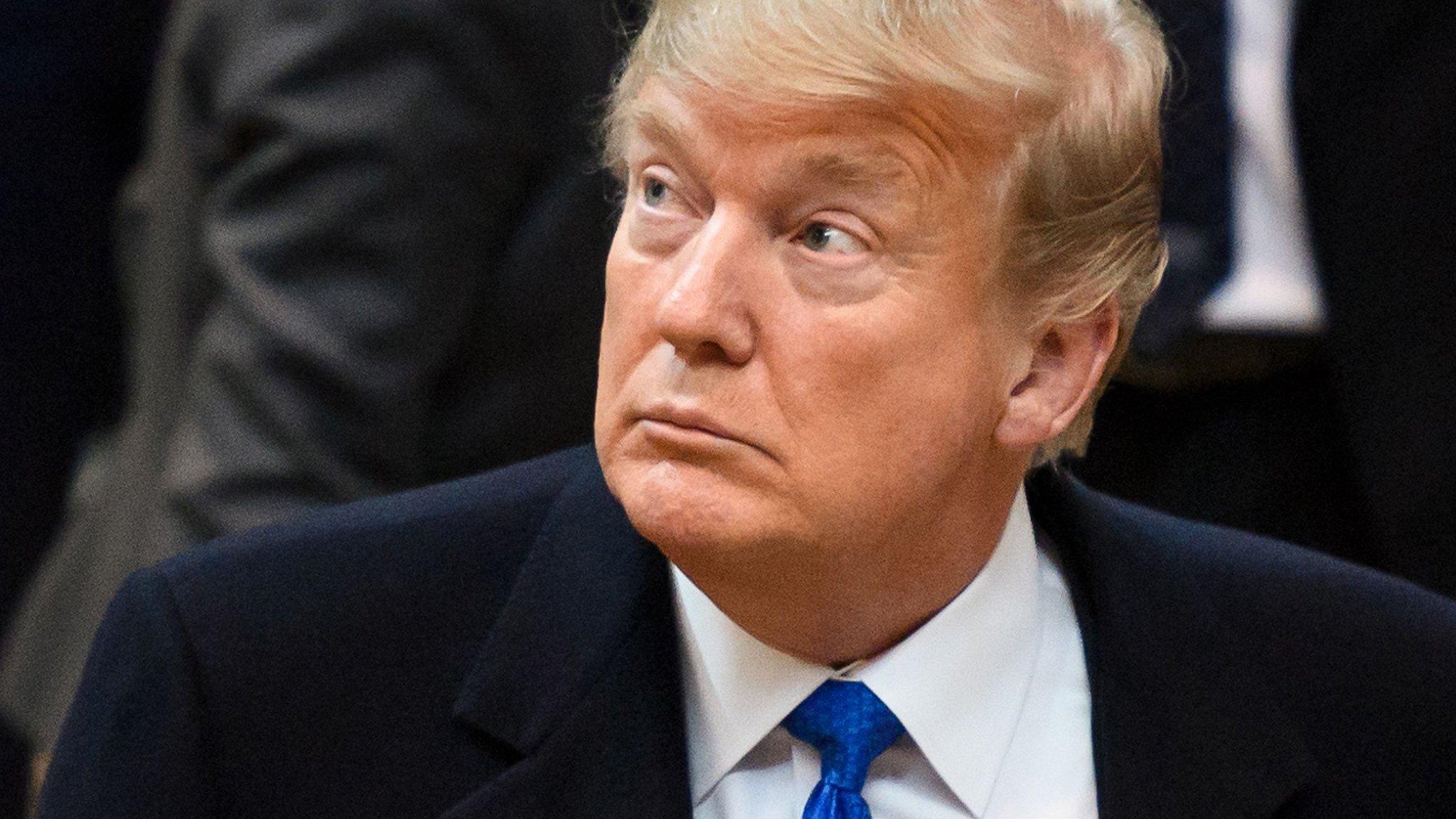Trump Davos speech: 'America First policy is not America alone'
- Published
What we learned from Donald Trump's Davos speech
President Donald Trump has told global finance leaders he will always put the US first when it comes to trade, but "that does not mean America alone".
"The US is open for business," he said in his inaugural address to the World Economic Forum in Davos on Friday.
But he continued to attack "predatory" trade practices, warning partners that the US would not tolerate unfair trade.
Mr Trump's election campaign centred on America First, aiming to protect local manufacturers from foreign competition.
This policy appeared to contradict the Davos conference's goal of promoting globalisation and co-operation.
Mr Trump lauded the economic achievements of his first year in office, including cutting corporation tax and lowering the unemployment rate, and said the US was more attractive than ever to foreign investment.
"I'm here to deliver a simple message - there has never been a better time to hire, to build, to invest and to grow in the United States. America is open for business and we are competitive once again," he said.
Taking credit for the strong economy in the US, he urged foreign investors to "bring your money, your jobs, your businesses to America".
As he was speaking, latest figures for US economic growth were released, showing a slowdown in growth from 3.2% to 2.6% in the final quarter of last year. This meant annual growth for 2017 was 2.3%, up from 1.5% in 2016 but below the president's 3% target.

A more nuanced approach
By Kamal Ahmed, BBC economics editor
"America First, not America alone." It was the key line of the speech, and a message echoed by other leading members of the White House power pack here.
This is all about trade and the US approach.
The fear was that America under Mr Trump would throw up a series of trade barriers, increasing protectionism at a time when most government leaders at Davos - Narendra Modi of India, Justin Trudeau of Canada and Emmanuel Macron of France - were preaching the gospel of globalisation.
But today we heard a more nuanced manifesto. America, Mr Trump said, did not want a trade war, it wanted fair trade.
Which may come as a surprise to countries like South Korea, smarting this week following the imposition of tariffs on US imports of solar panels and washing machines.

The US president demanded a reformed international trade system that was "fair and reciprocal" and accused unidentified countries of unfair practices, including "massive intellectual property theft" and providing state aid to industry.
Mr Trump also said he preferred bilateral fair trade agreements with other countries, including those signed up to the Trans-Pacific Partnership (TPP) from which he has withdrawn. He said he would consider negotiating with TPP states collectively, if it was in America's interest.
He later tweeted that his speech had been well received.
Allow X content?
This article contains content provided by X. We ask for your permission before anything is loaded, as they may be using cookies and other technologies. You may want to read X’s cookie policy, external and privacy policy, external before accepting. To view this content choose ‘accept and continue’.
But some attendees booed when he attacked the media and repeated accusations of them reporting "fake news" in a question and answer session after his address.
"As a businessman I was always treated really well by the press… and it wasn't until I became a politician that I realised how nasty, how mean, how vicious and how fake the press can be," he said.
The BBC's Katie Hope, who attended the speech, says anticipation was high but the audience's response was rather muted with some expecting a more conciliatory tone.

Donald Trump's speech was eagerly anticipated
Despite this, Mr Trump has had an overwhelmingly positive reception, with cheers on his arrival on Thursday in the main Congress Centre.
In a meeting with UK Prime Minister Theresa May the same day, he said he expected "a tremendous increase" in trade between the US and Britain in the coming years.
He has also said he is prepared to apologise for retweeting posts from a British far-right group last November, a move that sparked a Twitter row with Mrs May.
In an interview Mr Trump told ITV's Piers Morgan: "If you are telling me they're horrible people, horrible, racist people, I would certainly apologise if you'd like me to do that."
President Trump's speech comes days after the US announced new tariffs of up to 50% on imported washing machines and solar panels, prompting an outcry from China and South Korea - the primary targets of the measure.
Treasury Secretary Steve Mnuchin, also in Davos, has warned of "more to come" on trade tariffs.
- Published26 January 2018
